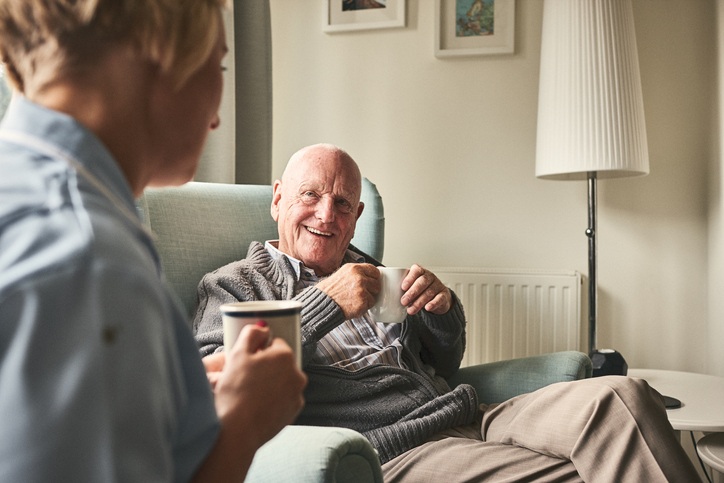____________________________________________________________________________________________________________________________________________
Key Takeaways
Multifaceted impact on caregivers
Dementia care creates significant external pressures, including financial strain and emotional challenges like social isolation, guilt, and the loss of personal identity as care demands increase.
Importance of early planning
Proactive management is essential; families should establish a Lasting Power of Attorney (LPA) and discuss financial or care preferences early to ensure the individual’s wishes are respected.
Support systems and resources
Sustainable caregiving requires utilising external help, such as NHS carer’s assessments, respite services, and specialised charities to provide the professional training and emotional relief necessary to prevent burnout.
____________________________________________________________________________________________________________________________________________
Did you know that almost one million people in the UK are living with dementia, and more than half rely on a close family member as their primary carer? While it is remarkable to have loved ones providing such vital support, the condition affects not only the person diagnosed but also the family and friends who care for them. As the level of care required is often high, with the need for constant monitoring, this can bring significant emotional, physical and practical challenges.
According to NHS England, around 1 in 3 of us will care for someone with dementia within our lifetime. There are over 540,000 registered dementia carers for people with dementia in the UK, many of which are relatives. The commitment comes at a cost. An estimated 66,000 family carers have had to reduce their working hours, while a further 50,000 have left their jobs entirely to provide full-time care. The financial impact of dementia is significant, not only on the economy, but on the stability and wellbeing of families across the country.
With the right information, support, and planning, however, families can navigate the journey with compassion, dignity, and confidence.
The impact of dementia on families
Caring for a loved one with dementia often means reshaping many aspects of daily life. Having open and honest conversations as early as possible can make a world of difference. Talk about important matters such as finances, wills, funeral wishes and setting up a Lasting Power of Attorney while your loved one is still able to share their views. These discussions not only ensure their wishes are respected, but also give everyone clarity and peace of mind for the future.
Finances
Money can be a difficult topic in any family, but it becomes even more sensitive when caring for someone with dementia. Having these conversations early, before the condition progresses, can make decisions easier. Start with practical matters such as paying bills and managing important documents, then move on to more delicate topics such as wills and funeral arrangements.
It is wise for your loved one to set up a Lasting Power of Attorney (LPA) while they are able, so someone can make decisions on their behalf. If this is not possible, you can apply to the Court of Protection to appoint a deputy.
Emotional pressure
Many carers find it difficult to open up about the emotional toll of supporting someone with dementia. Feelings of guilt can creep in when asking for help, and it is easy to believe that keeping those emotions to yourself is the best option. In reality, bottling things up can take a serious toll on your wellbeing. You might struggle to sleep, find it hard to rest, or skip taking regular breaks. Over time, this can lead to a decline in mental health, which may be further strained by the daily demands of caring for your loved one.
Relationship changes
Caring for someone with dementia can place a real strain on relationships, both within the family and beyond. When you are providing round-the-clock care, it is easy for friendships to fade and for partners to feel neglected. You may find yourself torn between wanting to be there for your loved one and needing to nurture other relationships in your life. Spending time with friends can bring feelings of guilt, as though you are abandoning the person you care for. On the other hand, dedicating all your time to caring may leave you feeling isolated and misunderstood by those outside the situation. Finding a balance can be one of the hardest parts of the journey.
Social isolation
Social isolation is often overlooked. As the demands of care increase, social activities and hobbies are often the first things to be set aside. Invitations may decline over time, or you might turn them down because leaving your loved one feels difficult or impossible. This gradual withdrawal can leave you feeling cut off from the outside world. Without regular social contact, it is easy to lose a sense of your own identity beyond being a carer. Staying connected, even in small ways, can make a big difference to your wellbeing.
Resources and practical support
You may feel stuck, lost or in over your head, but you do not have to face dementia alone. There are many forms of support you can benefit from as a dementia carer.
Carer’s assessments
The NHS offers a carer’s assessment service, where they can give you personalised recommendations to help make day-to-day life as a carer a little easier such as offering you some dementia training. They may also offer you the chance to take a break from caring or offer help with housework or shopping. Support groups and respite care options are also available through your GP or local authority.
Support groups
There are a wide range of support groups and local charities in the UK who offer support such as Age UK, Dementia UK and Carers UK . Additionally, you can visit local memory cafes where there are often professionals on hand to chat in complete confidence.
Online resources
Carers UK and Alzheimer’s Society have online forums that let carers share their experiences and coping strategies. There are also a wide range of helpful articles, guides and videos across the web. Some also find social media a great way to find others and to share useful information.
Respite
When you feel you have reached your limit, it is important to take a break. Many local councils offer sitting or “befriending” services, where someone can spend time with your loved one while you rest or attend to other things. Local day centres can also provide a safe and engaging environment for them.
If you need a longer pause, you may be eligible for respite care through the NHS in England, Wales or Northern Ireland. This can give you anywhere from a few days to several weeks of relief, with trained professionals looking after your loved one so you can recharge.
Find out more about our dementia care services
Key questions to ask when diagnosed with dementia
Any new diagnosis can feel overwhelming. Preparing the right questions will help you understand the condition and plan ahead.
- How was the diagnosis made?
- What type of dementia is it?
- What stage is it at?
- What changes can we expect next?
- What treatment or management options are available?
- Is it still safe to live at home?
- Where can we get emotional and practical support?
How does someone with dementia feel?
Emotional effects
A dementia diagnosis can trigger a wide range of emotions, both for the person diagnosed and for those around them. They may feel shock, denial, anger, grief, fear or, in some cases, even a sense of relief at finally having answers. These emotions can change quickly, and emotional outbursts such as sudden crying, laughter or irritation may happen without warning. It is important to respond with patience and empathy, even when the reactions seem out of proportion to the situation.
Cognitive effects
Dementia affects thinking and memory in ways that can be disorientating and frustrating. Your loved one may experience confusion, find it hard to make decisions, struggle to recognise familiar people or places, or have difficulty following conversations. These challenges can make everyday tasks feel overwhelming and may lead to withdrawal from social situations.
Physical effects
The condition can also impact mobility and coordination, leading to unsteadiness, pacing, or repetitive movements like fidgeting. Fatigue may set in more quickly, and assistance may be needed for basic daily activities such as dressing, eating, or bathing. Adapting the home environment for safety and accessibility can help maintain independence for as long as possible.
Sensory changes
Dementia can alter how a person experiences the world around them. They may find it harder to judge distances, notice changes in taste or smell, or develop sensitivities to noise and light. These changes can contribute to confusion or discomfort, so making adjustments such as improving lighting, reducing background noise, or offering familiar foods can help.
Loss of autonomy
As the condition progresses, your loved one may need help with personal tasks they once managed independently. This loss of autonomy can be deeply upsetting and may lower self-esteem. Offering reassurance, involving them in decisions where possible, and encouraging participation in familiar activities can help preserve a sense of dignity and purpose.
Caring for a parent with dementia
Caring for a parent with dementia at home can be challenging, but understanding the condition and its progression helps prepare you for the journey. Early signs may include confusion, behavioural changes, memory loss, and reduced concentration. Dementia progresses differently for each person, so regular monitoring through memory tests, scans, and follow-up appointments is important.
Working closely with their healthcare team to create and adjust a written care plan ensures that care remains aligned with your parent’s needs and preferences. Maintaining routines, providing engaging activities, and involving them in decisions where possible can improve their quality of life.
Caring in late-stage dementia
In the later stages of dementia, a person often becomes frailer and more reliant on others for care, experiencing severe memory loss, communication difficulties, mobility problems, and changes in behaviour. While progression varies, symptoms commonly affect memory, concentration, planning, mobility, eating, and continence.
Emotional wellbeing can still be supported through familiar environments, meaningful activities, and positive interactions. Communication may require patience, eye contact, non-verbal cues, and reassurance. Weight loss is common and can be managed with supportive feeding strategies. Continence issues may arise from medical conditions, medication, or forgetfulness.
Behavioural changes such as agitation, aggression, or hallucinations can often be eased by checking for discomfort, reducing overstimulation, and providing calming activities. Pain and illness, including delirium, should be promptly addressed. Respecting care preferences expressed earlier in life helps maintain dignity and comfort in this stage.
Caring for yourself as a carer
Sustaining your own health is essential if you are to sustain the care you give. Regular breaks or respite, whether through respite services or help from friends and family, can give you the chance to rest and recharge. Staying connected with others, particularly through carer support groups, can ease feelings of isolation and provide valuable advice from people who understand your situation. Make sure you keep up with your own medical appointments and consider counselling if you feel you need extra emotional support. Remember, dementia care is a continual learning process. Seek out training and reliable information so you can adapt and respond to the changing needs of your loved one with confidence.
How can Cavendish Homecare help?
At Cavendish Homecare, we are experts in providing dementia care for clients who want to remain in their own homes. When it comes to your health and well-being, choosing the right homecare package is of utmost importance and navigating this process can be overwhelming. With Cavendish Homecare by your side, you’ll have the support you need to remain safely at home while enjoying elevated health and wellbeing.
If you would like to enquire about our homecare services, contact us on 020 3008 5210 or email us at info@cavendishhomecare.com.

About the Author…
Zahrah Abdullah
Operations Lead
Zahrah supports the day-to-day operations, combining her management expertise and care experience to keep things running smoothly and ensure the best outcomes for clients. She’s passionate about making a meaningful difference behind the scenes and helping the team deliver exceptional personalised care.
 Back
Back